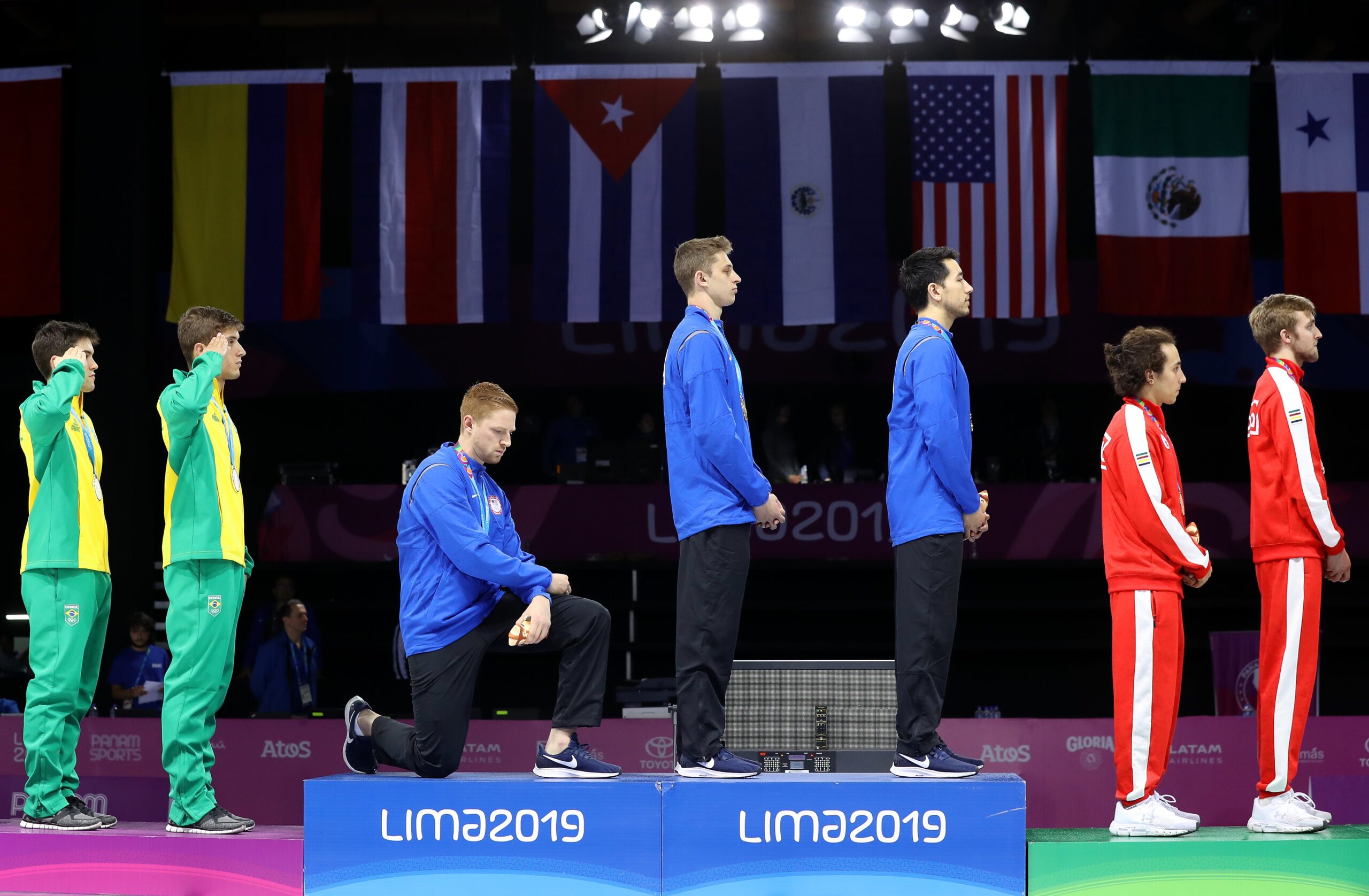Even though athletes won’t be sanctioned for raising their fists or kneeling during the national anthem at the Olympic trials, once the Olympics actually begin on July 23, they’ll be subject to discipline should they decide to do so, according to The Guardian and NBC Sports.
Suggested Reading
Rule 50 of the Olympic Charter explicitly states: “No kind of demonstration or political, religious or racial propaganda is permitted in any Olympic sites, venues or other areas.”
In light of athletes becoming far more expressive as a collective and using their platforms to address social justice and human rights violations, the International Olympic Committee received pushback to ease up on this rule that prohibits athletes from demonstrating on the podium, the field of play, or at the opening and closing ceremonies. But in the end, the committee listened to the athletes themselves.
Of 3,547 athletes surveyed from 185 countries, an overwhelming majority—70 percent to be exact—believe that the field of play and official ceremonies aren’t appropriate places to protest. 67 percent support a ban of podium protests, while 40 percent believe that protests would “detract from their Olympic experience/performances.”
Athletes will still be allowed to express their personal views during press conferences, outside of Olympic venues, and on social media, but have been warned that freedom of speech “is not absolute” and “may be limited” under certain circumstances. Kirsty Coventry, the IOC Athletes Commission chair, has promised that there will be “increased opportunities for athletes expression during the Games”, which will include a “moment of solidarity against discrimination” at the opening ceremony.
48 percent of athletes who participated in the survey deemed doing so as “important”.
“Rule 50 does not aim to silence athletes or make them apolitical,” the athletes’ commission report reads. “The IOC appreciates that athletes may wish to be vocal or political about issues they feel strongly about. Rule 50 aims to protect the political, religious and racial neutrality of a few strictly defined locations (field of play, Olympic Village) and of a few strictly defined moments (Olympic medal ceremonies, Opening, Closing and other official Ceremonies) which form the core of the Olympic Games.
“Although the restriction imposed by Rule 50 may appear too sweeping, especially if compared to some sports organizations which allow expression in support of social (as opposed to political) causes, there are significant difficulties that an organization as diverse and universal as the IOC would face in distinguishing between admissible and inadmissible causes. For this reason, a blanket of neutrality is deemed an appropriate and proportionate solution, including from a human rights perspective, given the risk of politicizing the IOC and alienating countries or athletes.”
It’s still unclear what punishment athletes will face should they decide to protest or kneel anyway, though Rick Maese of the Washington Post pointed out that the United States Olympic & Paralympic Committee has already announced that it won’t punish anyone for peacefully protesting at either the Olympics or Pan American Games. And if that’s the case, then how does the IOC or any other international organization plan to enforce Rule 50 if they’re being undermined at the national level?
Fencer Race Imboden was given 12 months probation in 2019 for taking a knee during the Pan American Games medal ceremony, and a day later, track and field star Gwen Berry raised her fist at the podium then called out Donald Trump.
“Somebody has to talk about the things that are too uncomfortable to talk about. Somebody has to stand for all of the injustices that are going on in America and a president who’s making it worse,” Berry told USA Today at the time. “It’s too important to not say something. Something has to be said. If nothing is said, nothing will be done, and nothing will be fixed, and nothing will be changed.”
The USOPC later apologized for sanctioning Imboden and Berry and overturned their suspensions. Berry had something to say about that, too.
“Black athletes have been suppressed and living in fear since Tommie [Smith] and [John Carlos’] protest.. no different to the last 400 years,” she tweeted in December. “The chains and the whip have just been taken away .. #NOMORE Don’t be surprised at the reaction you’ll get in Tokyo ✊🏾”
That sounds like foreshadowing to me.
USOPC CEO Sarah Hirshland claims that her organization “values the voices of Team USA athletes and believes that their right to advocate for racial and social justice, and be a positive force for change, absolutely aligns with the fundamental values of equality that define Team USA and the Olympic and Paralympic movements,” but it’s clear the IOC has determined otherwise.
I’m not entirely clear on which organization has authority over the other, but things will definitely get interesting come July.
Straight From 
Sign up for our free daily newsletter.



